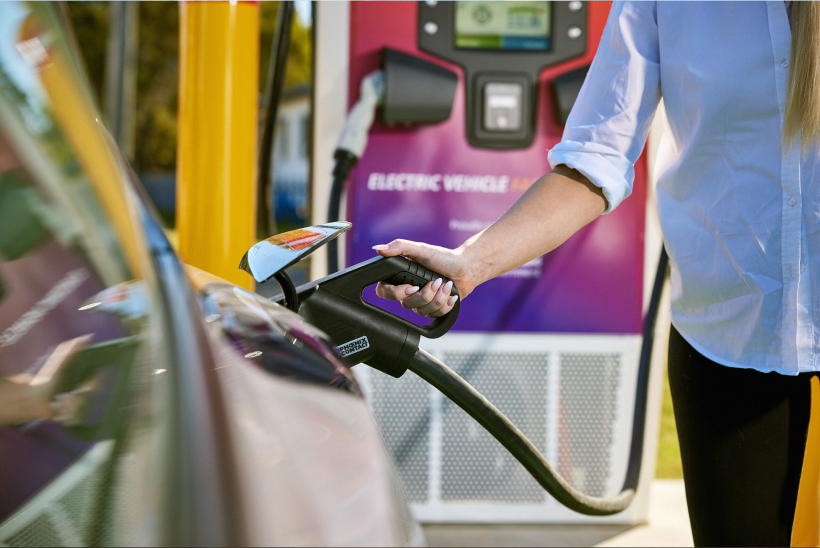Yurika EV chargers now catering for apartment buildings

By the end of the decade, electric vehicle (EV) sales are predicted to represent half of all new car sales and account for 2.1 million (13%) of registered passenger vehicles. The Australian housing landscape is dominated by detached and semi-detached homes, but what about flats or apartments – how will charging infrastructure cater for those residents? Yurika has just installed its first EV chargers for an embedded network in an apartment building under construction in New South Wales and is preparing for many more installations just like it.
Yurika Account Manager, Bryn Somers worked with the property developer to assess the building requirements, design, and install an EV charging solution and says there is increasing demand from developers wanting to cater for their residents.
“We’re seeing a lot of interest in EV charger and metering bundled services in the residential customer space, particularly from developers and embedded network operators.
“In this case we installed two Siemens Versicharge 22kW capacity units in a space where they can be accessed by all the building residents using a payment platform and operations service,” said Bryn.
The installation allows for another two chargers to be added in future if required and considered the incoming National Construction Code changes. Ethernet connectivity was provided from a communications room at the ground floor of the apartment block and run to the charger on basement level 3.
Yurika offers a range of EV services that include public charging infrastructure, to intelligent electric depot charging for businesses, government, or transit operators. Yurika hold the largest stock of EV chargers in Australia, supplying chargers for any scale car, bus, or truck fleet, and now also caters for residential or office buildings with basement charging requirements.
“Our customers are finding value in partnering with Yurika because we can help you get started and work with you at every stage, from concept to completion and beyond,” said Bryn.
Yurika’s expertise in networks and electrical infrastructure means they can do much more than just supply products – tailoring a complete turnkey solution from site assessment right through to design, equipment supply, installation, operation and maintenance, and data insights.
“Yurika helps to deliver various EV charging configurations in the most energy efficient, cost efficient, and sustainable way,” said Bryn.
The process starts with a site assessment, looking at what’s possible at your site. With a desktop analysis, current energy use and renewable energy options including solar generation, battery storage systems and time management for EV charging can be explored.
Yurika can then complete an electric design and energy financial analysis, install the equipment, and is also able to offer ongoing operation and maintenance services.
“We provide several options for customers when it comes to metering or requests requiring greater levels of electric vehicle digital enablement.
“This includes using Internet of Things (IoT) devices and new connectivity methods like 5G and mobile broadband connections,” Bryn says.
References:


